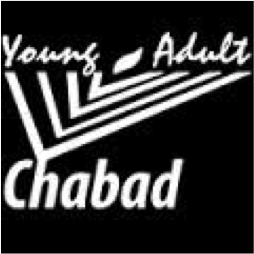Beyond Right. The values that shape Judaism’s civil code
This course combines the study of Jewish values with the exploration of practical and relevant halachic questions.
In the six lessons of this course we discuss fundamental Jewish values such as lifnim mishuras hadin, arvus, and teshuvah—and demonstrate how these values guide and shape Jewish civil law.
The goal of this course is to teach students the true meaning of Jewish values and what makes Jewish civil law uniquely Jewish.
Beyond Right starts 11/5/ 22
and continues
25/5
1/6
8/6
15/6
22/6
Classes will be held in the Newtown Shul Hall from 7:30-9pm on Wednesday nights.
Lesson Topics
![]() SESSION ONE
SESSION ONE
Beyond Good Neighbors
What is the purpose of law? Is the goal of law merely to protect individual rights and maintain social order, or should the legal system aspire to guide people to do the right thing and shape a righteous society?
This lesson explores the Jewish value of going beyond one's "rights" in order do the right thing by others. We learn that Jewish law aims to shape a righteous society, and to this end it forbids spiteful conduct and legally compels us to do the right thing
and accommodate each other when this comes at no personal expense. This principle is applied to neighborly disputes about fences, parking in someone else's driveway, and unauthorized Wi-Fi use.
![]() SESSION TWO
SESSION TWO
Beyond Restitution
What does true repentance entail? Does repentance have any role to play in the legal system, or should it be considered a strictly personal matter?
This lesson begins by establishing that Jewish repentance— known as teshuvah—is always available to everyone, and defines what this process entails. We learn that overcoming struggles is the very purpose of our creation and brings us to greater heights than what was available to us previously.
Jewish values teach that every offender deserves the opportunity to do teshuvah and that we have an obligation to help facilitate it. Jewish law expresses this value in a number of surprising enactments introduced into the legal system in order to encourage and facilitate teshuvah. Under these enactments, thieves are sometimes allowed to substitute monetary compensation for the stolen item, and the victims of career
criminals that come forward to make amends are counseled to not accept compensation.
![]() SESSION THREE
SESSION THREE
Beyond Taking Offense
We all feel some degree of responsibility toward others, but how far does this responsibility extend? Is other people's personal conduct any of my business?
In this lesson we learn that Judaism has a very broad definition of mutual responsibility, because it believes we all have a shared purpose in this world and share a spiritual soul. As a result, Jewish law considers it a crime to remain silent about a mortal danger to others and also mandates that we extend every effort necessary to protect others from monetary loss. The Jewish value of mutual responsibility also calls on us to care for our fellow's personal spiritual well-being by guiding him or her away from transgression and toward mitzvah observance.
![]() SESSION FOUR
SESSION FOUR
Beyond Personal Freedom
What does it really mean to be free? Is a life of religious observance compatible with personal freedom?
This lesson teaches that the Jewish definition of freedom is living the life we were created to live, a life of devotion to G-d as our one true Master. To achieve this, humans must be free of enslavement to human masters, and this is why Judaism was always—and continues to be—ahead of its time in prohibiting slavery and imprisonment for the purpose of repaying debts.
Jewish law is also wary of the compromised freedom of employees and, to this end, goes further than other modern legal systems
in protecting the right of employees to quit mid-contract without penalty.
![]() SESSION FIVE
SESSION FIVE
Beyond Lawful Ownership
Is ownership a legal status, or an ontological reality? Not just an abstract philosophical matter, the answer to this question
impacts practical ownership questions: Can I ever take someone
else's possessions under the assumption that they won't mind? How far does the requirement to return lost items extend?
This lesson teaches that ownership is an ontological reality that reflects a spiritual relationship between a person and their possessions. As a result, Jewish law forbids us from taking other people's property under an assumption of permission and obligates us to return lost items, regardless of how much time has passed since the loss. The Jewish concept of ownership also informs our attitude to ownership as a responsibility, not just a privilege.
![]() SESSION SIX
SESSION SIX
Beyond Presumption of Innocence
Are there any human biases we should actively cultivate? Is human nature essentially good, or negative?
In this lesson we learn about the Jewish value of judging others with a favorable bias, in the same light we judge ourselves. This positive bias is based on the Jewish teachings that human beings are positive by nature and naturally inclined to do the right thing.
As a result, in addition to a presumption of innocence, Jewish law also affords people a presumption of righteousness. This principle is applied in a range of areas, from kosher slaughter to suspicion of theft and unethical business conduct. Jewish law teaches us to not judge people based on statistics or beliefs about the broader public—but rather, to assess them with a favorable eye based on their individual merit.
Newtown, NSW 2042
Australia
| Donation Amount | A$1.00 |
